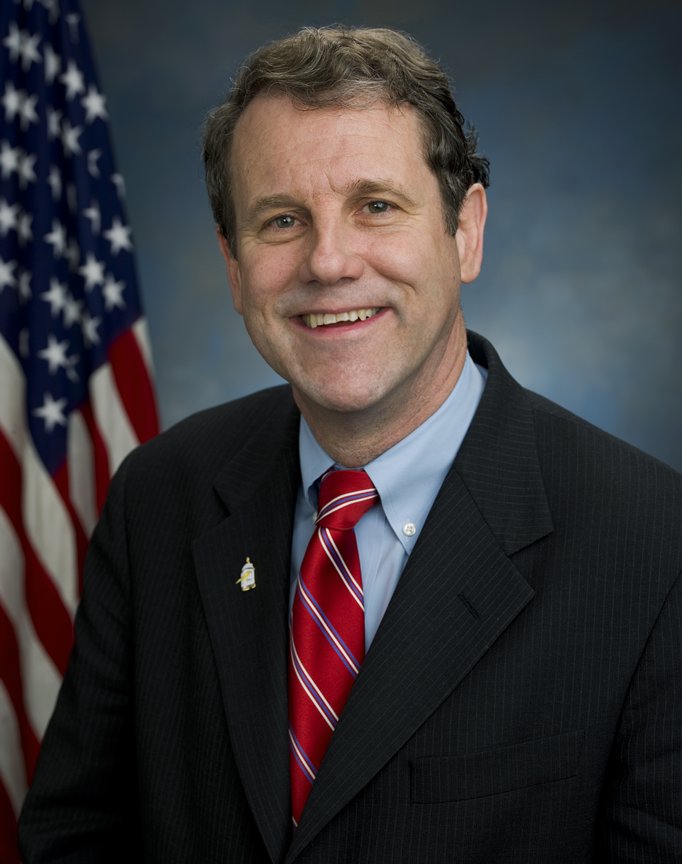Civilization
Republicans Flip Senate, Eye More Gains
Republicans will definitely control the Senate next year and might gain even more seats as vote counting continues.

Voters handed control of the U.S. Senate to Republicans Tuesday, although the contests in several battleground states won by Donald Trump were still too close to call Wednesday morning.
The importance of the Senate
The Democrats’ loss of control of the upper chamber wasn’t unexpected. Republicans were defending only 10 seats, while Democrats had to protect 23, several of them in states Trump carried yesterday.
Still, the significance cannot be overstated.
President-elect Trump now has the assurance of at least a 51-seat majority in the Senate, which will help him install his Cabinet and likely help pass many of his top priorities, including stopping the flow of migrants across the southern border and instituting more tariffs on the import of foreign goods.
During his election-night remarks, Trump marveled about the shift in the balance of power.
“We have taken back control of the Senate – wow!” he said. “I mean, the number of victories in the Senate was absolutely incredible.”
Just after midnight, Republicans secured a victory in Ohio, where Bernie Moreno, a car dealership owner, defeated Democratic Sen. Sherrod Brown, who has served in Congress since 1993, including 14 years in the House.
“Tonight, we have a red, white, and blue wave in this country,” Moreno told supporters after the race was called in his favor. “We need leaders that put our interests above their own. We’re tired of leaders that think we’re ‘garbage.’ We’re tired of being treated like garbage.”
Chuck Schumer will become Senate Minority Leader
Channeling Trump, whose coattails likely gave him the winning edge, Moreno took a shot at Senate Majority Leader Chuck Schumer.
“Thanks for the help in the primary, but you’re fired, buddy,” Moreno added, referring to Democratic linked groups who spent big to defeat him. “With Donald Trump and J.D. Vance in the White House, we’re gonna have a new agenda. We’re gonna be pro-immigration, not pro-invasion. We’re going to be an energy-dominant nation.”
The GOP Senate wins also likely preserved the Senate filibuster, the 60-vote threshold targeted by Democrats throughout the campaign. The filibuster was seen as the barrier standing in the way of Democratic Party pet issues, ranging from codifying abortion into federal law to expanding the Supreme Court.
“Roughly ten minutes ago, the ‘end of the filibuster’ movement suddenly went silent,” commentator Jonathan Turley said in an X.com post. “In the morning, the rights of the minority will suddenly become the cause célèbres of Washington.”
Roughly ten minutes ago, the "end of the filibuster" movement suddenly went silent. In the morning, the rights of the minority will suddenly become the cause célèbre of Washington…— Jonathan Turley (@JonathanTurley) November 6, 2024
After Trump’s victory Tuesday night, Georgetown law professor Randy Barnett posted a terse moment of celebration that the filibuster would likely remain intact while Republicans maintain control of the upper chamber.
“Making the filibuster Great Again,” he declared.
From the outset, the Senate seat flip in West Virginia was a fait accompli, as popular Republican Gov. Jim Justice won his race to replace retiring independent Sen. Joe Manchin in a deeply red state. Justice won 68.9% of the vote while 27.6% went to Glenn Elliot, a Democrat and former Wheeling mayor.
Montana
Another domino to fall – and this wasn’t a surprise, either – came in Montana, where Democrat incumbent Jon Tester, who has served in the Senate since 2007, lost to former Navy SEAL Tim Sheehy. The sparsely populated state was blanketed in some $250 million worth of ads, most of it fueled by outside money. In the end, it didn’t matter much: Trump carried Montana by more than 100,000 votes out of only 500,000 cast – more than enough coattails.
Meanwhile, Sen. Deb Fisher, a Republican, also handily defeated Dan Osborn, a former union leader and Navy veteran, in Nebraska, fending off a last-minute scare from the independent. Early Wednesday morning Fisher appeared poised to win 53.6% to Osborn’s 46.4%, with 95% percent of the state’s total vote reported.
A number of key races that could strengthen the GOP majority were still too close to call as of early Wednesday morning.
Pennsylvania
Losing Pennsylvania was a fatal blow for Kamala Harris’ White House hopes, and Trump’s win in the Keystone State could have helped buoy Republican David McCormick, a former hedge fund CEO, to victory over one of the most popular state scions, Sen. Bob Casey, whose father, a pro-life centrist, served as governor from 1987 to 1995.
McCormick was leading Wednesday morning, 49.2% to Casey’s 48.2%, but the remaining outstanding votes are predominantly located in firm Democratic areas, such as Philadelphia, and Democrats were expressing optimism that Casey will overtake McCormick in the final tally – although both sides say it will be close.
Wisconsin
Rep. Tammy Baldwin and Republican Eric Hovde were locked in a dead-even race at the end of Election Day. By Wednesday morning, Baldwin held a slight edge, as she outperformed Kamala Harris by roughly 50,000 votes, making a win far more possible even though Trump was declared the victor in the Wolverine State early Wednesday morning.
Michigan
Republican candidate Mike Rogers, former House member who served as the Intelligence Committee chairman, was running neck and neck with Democratic Rep. Elissa Slotkin as the votes trickled in Wednesday. Polls ahead of Election Day said Rogers had a tough road to victory, predicting Slotkin was 2.3% ahead of Rogers. And though he outperformed his polls, he was trailing Slotkin by some 4,500 votes – out of 5.3 million cast. This race is still too close to call.
Nevada
The biggest upset of the night could come to Democratic Sen. Jacky Rosen. Rosen is facing Sam Brown, a veteran of the Afghanistan war who was severely burned by an improvised explosive device and nearly died.
As of early Wednesday, the race was a virtual dead heat, with Brown garnering 47.3% to Rosen’s 47.2%. Brown was trailing Rosen by 4.9% in the RealClearPolitics Average of polls headed into Election Day.
This article was originally published by RealClearPolitics and made available via RealClearWire.
Susan Crabtree is a political correspondent for RealClearPolitics. She previously served as a senior writer for theWashingtonFree Beacon, and spent five years asa White House Correspondent for theWashington Examiner.
-

 Civilization4 days ago
Civilization4 days agoThe Minnesota Insurrection
-

 Civilization4 days ago
Civilization4 days agoSupreme Court Orders CA Dems To Justify Prop 50 Maps
-

 Education3 days ago
Education3 days agoFree Speech Isn’t Free and It Cost Charlie Kirk Everything
-

 Civilization3 days ago
Civilization3 days agoThe Campaign Against ICE Is All About Open Borders
-

 Executive3 days ago
Executive3 days agoWaste of the Day: U.S.-Funded International Groups Don’t Have to Report Fraud
-

 Executive5 days ago
Executive5 days agoObama’s Fingerprints All Over Investigations of Trump And Clinton
-

 Executive4 days ago
Executive4 days agoWaste of the Day: How the Grinch Stole $30,000
-

 Civilization2 days ago
Civilization2 days agoThe Battle for the Arctic Runs Through Greenland












